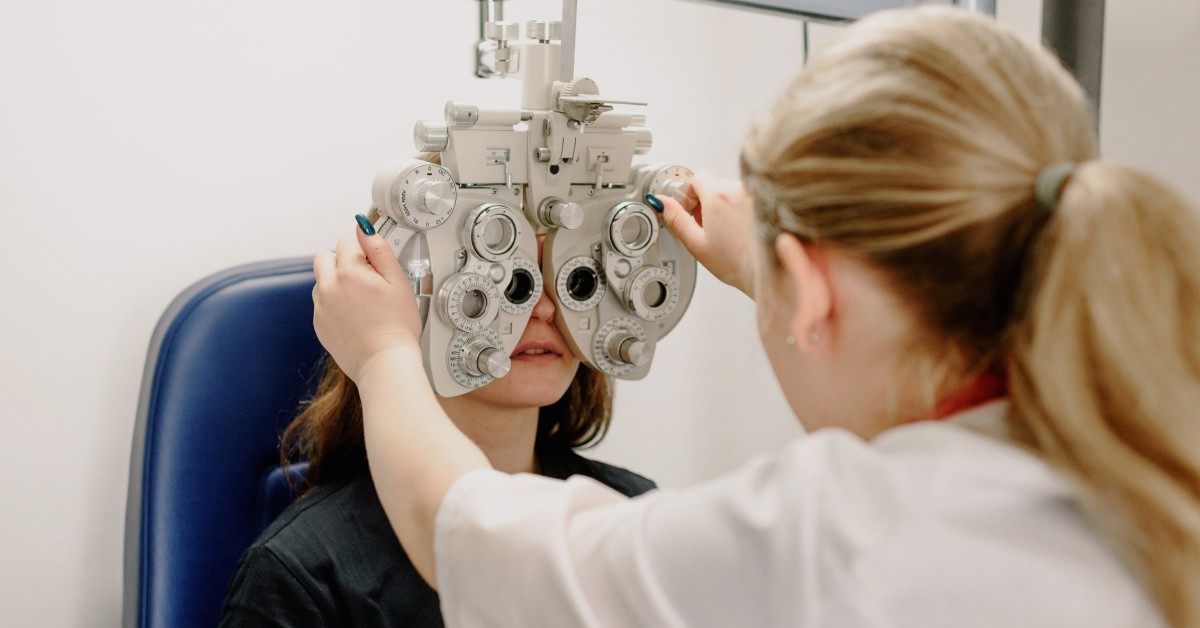
How Much Will You Make With a Healthcare Administration MBA?
Healthcare management in the U.S. is exceedingly complex. Medical facilities [...]

Nearly all hospitals are run by an executive team, the leader of which is the hospital’s chief executive officer (CEO). The CEO role is typically filled by someone with a business background, but not always; in some instances, the CEO is a medical professional, perhaps a nurse or doctor.
Regardless of whether they arrived at the position through business or medical acumen, nearly all hospital CEOs have a master’s degree in healthcare or hospital administration, although this, too, is not universally true. As with most leadership roles, career fit is more important than a checklist of qualifications (although degrees and other qualifying accomplishments certainly factor into how well a candidate fits the role).
What is universally true is that an effective hospital CEO must be equally adept at supervising a hospital’s day-to-day operations, and at developing and implementing the hospital’s strategic vision, policies, and mission. It is a position that requires a broad and unique set of talents.
What does it take to become a hospital CEO? In this article, we’ll cover:
Like most top executives, hospital CEOs need strong leadership skills. More so than other health care administrators, hospital CEOs need to be extremely flexible, cool-headed, smart, and industrious. Most of the time, hospital CEOs operate at the 30,000-foot level, but should circumstances require it, they’ll be expected to take on any number of on-the-ground challenges that CEOs in most other industries wouldn’t.
The responsibilities of a hospital CEO include:
This is a huge component of the job and will contribute to the overall health and functionality of the hospital. Because healthcare jobs require both medical and administrative expertise, staff must be well chosen and well-trained.
Patient care is ultimately why hospitals exist, and quality of emergency and long-term care is what needs to be measured to determine effectiveness and success.
High-level administrative work is one of the biggest challenges of the job. Staying on top of all government policies and requirements takes a strong staff, good communication and training.
Fundraising might be one of the most important duties a CEO takes on. Providing a healthy budget keeps hospitals functioning and allows for proper staffing, quality care, up-to-date technology and future plans.
Great hospital CEOs are not afraid to get their hands dirty. For instance:
If there’s an MRSA outbreak in the hospital, the CEO will likely be intimately involved in the containment procedures.
If a new wing is being constructed, the CEO may be engaged in the project from fundraising through planning through groundbreaking through dedication and beyond.
Unlike other healthcare executives or chief executive officers in other fields, hospital CEOs are called upon to make life-and-death decisions.
This is not a job for the faint of heart, nor for anyone who has trouble performing under pressure.
| University and Program Name | Learn More |
|
Boston College:
Online Master of Healthcare Administration
|
Reaching this loftiest of hospital administrative positions, typically, is a long process that involves many years of schooling followed by many more years of experience in the field. Hospital CEOs often begin their careers in healthcare administration or healthcare management, ultimately spending some time as a chief operating officer of a hospital.
Most hospital CEOs don’t have a medical background. In fact, according to The New York Times, the number of hospital administrators without any medical training at all has risen sharply in the past three decades.
That may be for the worse, as there’s evidence suggesting that physician-led hospitals perform better than those overseen by hospital executives without a medical background. A 2011 study published in the journal Social Science & Medicine found that hospital quality scores were about 25 percent higher in those institutions with hospital CEOs who were also doctors. That’s definitely something to consider as you decide whether to pursue medicine or business as your conduit to the pinnacle of hospital leadership.
In the end, each hospital selects its CEO (and the rest of its leadership team) based on its needs.
A hospital that is at the top of its game when it comes to patient satisfaction, patient outcomes, and patient safety but floundering when it comes to finances may prefer CEO candidates with a strong business background.
Hospitals in saturated areas struggling to compete with other medical centers and urgent care centers may want to find a CEO with a strong track record in marketing.
A hospital struggling to implement and manage a system of electronic medical records might want a CEO who knows a lot about health information systems.
There’s no one résumé that’s right for every hospital CEO position; on the contrary, each is practically sui generis. All you can do is prepare yourself with the broadest skill set you can and wait for the right opportunity.
Each hospital has different needs and requirements when it comes to the educational background of CEO candidates, but nearly all of them will require that candidates have at least a master’s degree. Is it possible for a healthcare management professional with a bachelor’s degree to enter health care administration and rise through the ranks to become a chief operating officer and then chief executive officer? It’s improbable, but not impossible.
More commonly, hospital administrators will earn a bachelor’s degree and then go on to earn a Master of Health Administration (MHA) or a Master of Public Health (MPH)—neither of which requires a background in medicine. Those aren’t the only degree paths associated with health administration, however. CEOs may also come to the position with a master’s in business administration, a master’s in healthcare management, a master’s in medical management, a healthcare Master of Business Administration, a master’s in nursing, or a medical degree.
There are traditional two-year graduate programs for all of these master’s degree paths at many universities, and some, like Johns Hopkins University and Stony Brook University, offer accelerated programs that let qualified candidates earn an MHA in just one year.
Larger institutions and teaching hospitals may require candidates to have clinical experience, and there are some degree programs that cater to these particular candidates. Georger Washington University and the University of Southern California, for instance, have online MHA programs that are particularly well-suited to those with a medical background.
Of course, schooling isn’t all it takes to become a hospital CEO. After you earn your degree, you’ll need to spend years working in hospital administration and earning a reputation for making the right calls.
Hospital CEOs actually do not need specific certification or licensure to take on their role. Much more important is relevant experience in a position of business leadership and strategic management, perhaps as a chief operating officer or chief financial officer of a hospital or medical facility. That said, there are quite a few voluntary certifications available for healthcare administrators and health services managers.
For instance, the American College of Healthcare Executives offers a Fellow of the American College of Healthcare Executives certification. Candidates must meet certain education and experience requirements, pass a Board of Governors Exam, and subsequently meet certain continuing education requirements. The American Association of Healthcare Administrative Management offers five certifications, including an executive certification earned via an extensive proctored exam.
Having additional certifications is a mark of distinction that can set a CEO candidate apart from others competing for the same open position. Being a part of the certifying professional society can also help you build a network that ultimately makes it easier to find opportunities in the healthcare space.
Becoming a hospital CEO means taking on a lot of responsibility and operating under pressure almost all the time. The compensation reflects these strenuous work conditions. While there is an ongoing push to reign in health care costs, hospital CEO pay has continued to rise and healthcare CEOs are some of the highest-paid executives in the United States. Healthcare Finance News reported that hospital CEO salary on average was about “$274,300 for hospitals with revenue up to $49.9 million. On the higher end, the report said CEO compensation was $1.4 million for hospitals with over $1billion in revenue.”
Why are hospital CEOs paid so highly? NorthShore University HealthSystem told Modern Healthcare magazine that CEO pay is “based on many factors, including our ability to consistently deliver high-quality care and excellent outcomes for our patients. Compensation also reflects the board’s view of the outstanding results executives have delivered amidst a challenging health care environment, as well as a desire to retain talented individuals in a very competitive marketplace.”
At the end of the day, hospital CEOs are more than just business leaders. They are the public face of the institution, absorbing criticism and facing the music when things go wrong. They’re also the backbone of the hospital, making sure each department has the critical resources necessary to succeed. And though hospital CEOs have to know a lot, they also can never stop learning and growing.
“What still amazes me is the amount of knowledge a CEO needs to have based on the complexity and ever-changing aspects of the healthcare industry,” Barry P. Ronan, President and CEO of Western Maryland Health System, told Becker’s Hospital Review. “In addition to the day-to-day requirements of running a health system, a CEO needs to be aware of so many other aspects of the industry. From federal requirements to state regulations; from financial planning to strategic planning; from clinical integration to health information technology; previously the CEO could get away as a generalist, but not anymore.”
Are you up to the challenge? If so, this is a job that will likely see you through to your retirement and fund that retirement handsomely, too.
(This article was updated on January 24, 2024)
Questions or feedback? Email editor@noodle.com

Healthcare management in the U.S. is exceedingly complex. Medical facilities [...]

Optometrists conduct eye exams that detect not only myopia, glaucoma, [...]

New developments in artificial intelligence are impacting fields from healthcare [...]

The states with the highest average salaries for psychiatric mental [...]
Categorized as: Healthcare Administration, Nursing & Healthcare